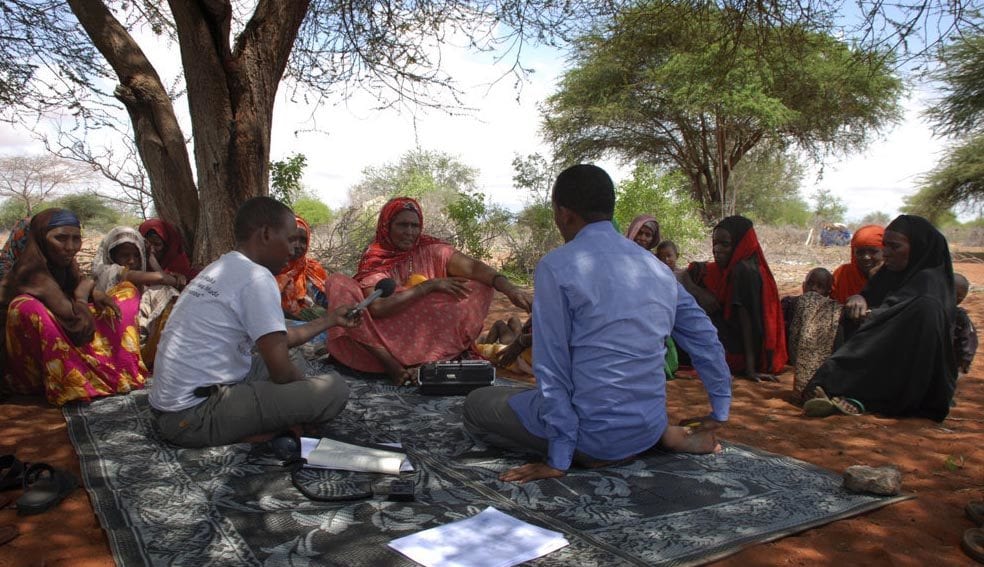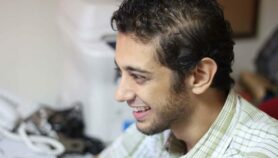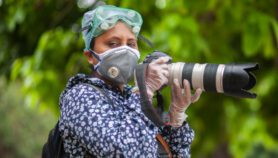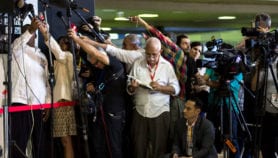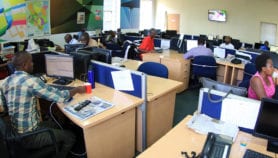By: Kaz Janowski
Send to a friend
The details you provide on this page will not be used to send unsolicited email, and will not be sold to a 3rd party. See privacy policy.
Should the media take on an aid role in humanitarian response? Kaz Janowski puts the case for lifeline programming.
We are all used to seeing media reports on humanitarian disasters, but TV and radio broadcasts are not usually part of the aid effort — with the notable exception of 'lifeline programming', developed in particular by the BBC in recent years to help save lives during a crisis.
I wondered how this could work as I assumed media organisations are reluctant to go beyond their traditional remit and 'give back' to the world they report on, while aid agencies could be worried about encroachment on their 'territory'.
So it was with great interest that on World Humanitarian Day (19 August) this week I accepted an invitation to attend a radio training course on lifeline programming given by BBC Media Action, a charity that carries out humanitarian and development work using the media.
Here is radio — 'old technology' so often eclipsed by television, the Internet and mobile phones — being put to a new use, and one for which it has always been well suited.
How lifeline programming works
Ever since the Rwandan genocide of 1994, the BBC World Service has responded to humanitarian crises by stepping outside its core business of news and current affairs programmes to deliver lifeline programming.
These programmes are intended to help people directly affected by disaster, by "providing them with, actionable, practical, life-saving information about how they can help themselves and giving them a voice to express their needs and concerns", as the BBC puts it.
Lifeline programming is where the media gives life-saving information rather than just reporting events. How this is achieved is what I and a roomful of World Service staff were about to find out.
Earlier, Jackie Dalton, senior producer and trainer for humanitarian programming at BBC Media Action had told me that "most media involvement around disasters tends to be about those that are affected — it [the media] focuses on the negatives of a disaster, describes how terrifying a disaster is, gives you the death toll, and often focuses on the poor efforts of governments and relief agencies".
Lifeline programming is for the affected population; it does not replace news coverage of disasters but works alongside it. "You can tell people how to make water safe to drink, when aid is coming, and how to recognise different aid providers," says Dalton.
Countering objections
While this makes sense to journalists and broadcasters, at first they are often resistant to playing a part in this kind of programming, not wanting to be 'part of the story' as an aid communicator.
Dalton has trained journalists in the UK and in countries prone to disasters, and in both cases the initial reaction tends to be the same. "Journalists can be a stubborn bunch," she says. "They are used to doing things in a certain way."
During training, seasoned journalists can be frosty. "At the beginning there is always a lot of journalists sitting there with folded arms, thinking: 'This isn't our role; why should we be doing this?'," she told me. But by the end of the training, even the hardest cases are won over — after all, she adds, "what journalist or broadcaster doesn't want to serve their audience?"
Journalists and broadcasters, of course, are uniquely placed to provide people with information. They know how to communicate and tend to communicate better than aid agencies. They have the platforms and the audiences. In other words, "they are in a position of power", says Dalton.
But if winning over journalists is difficult, convincing aid agencies may be harder. In times of disaster, agencies tend to be suspicious of the media — they ask awkward questions and are often on the look out for aid delivery failure. So how do the lifeline slogans that 'information is aid' and 'communication is aid' fit with the aid sector?
Another form of aid
Traditionally, aid is considered to be associated with providing food, water, shelter and medical care. Lifeline programming trainers argue that there is another form of aid, which is information and communication.
By the end of the course I was convinced that this was the case, if for no other reason than that life-saving information can reach people rapidly, well ahead of traditional aid, especially in remote or cut-off areas.
Whether it is information such as being aware that flood waters can harbour hazards from broken power cables, or that entering a building after an earthquake is unwise because of the dangers of aftershocks, it can definitely save lives.
As my training came to an end, I wondered whether science journalists might make a contribution to lifeline programming. There’s a strong case for science media to spread the word about innovations such as solar-powered water sterilisation devices and gravity lamps but practical messages about what to do would be invaluable too.
With this in mind I remembered a colleague from my BBC days — the late Laurent Ndayihurume, a senior BBC producer with the World Service from Burundi, who once told me that his name meant something like 'gatherer of the dew'.
The meaning referred to his family's ancestral role in the royal court of being the first to return in the morning, wet with dew, to report on events that had recently taken place in the kingdom. It struck me as a rich, poetic metaphor for what journalists do.
I now imagine a similar name — one which means something like taking sparkling gifts of information back to communities in distress — especially if the 'dew' originally collected is soiled with the blood and dirt associated with disasters, either natural or manmade.
Imams and mosques in Bangladesh. Sometimes old technology works best
Editor, SciDev.Net


